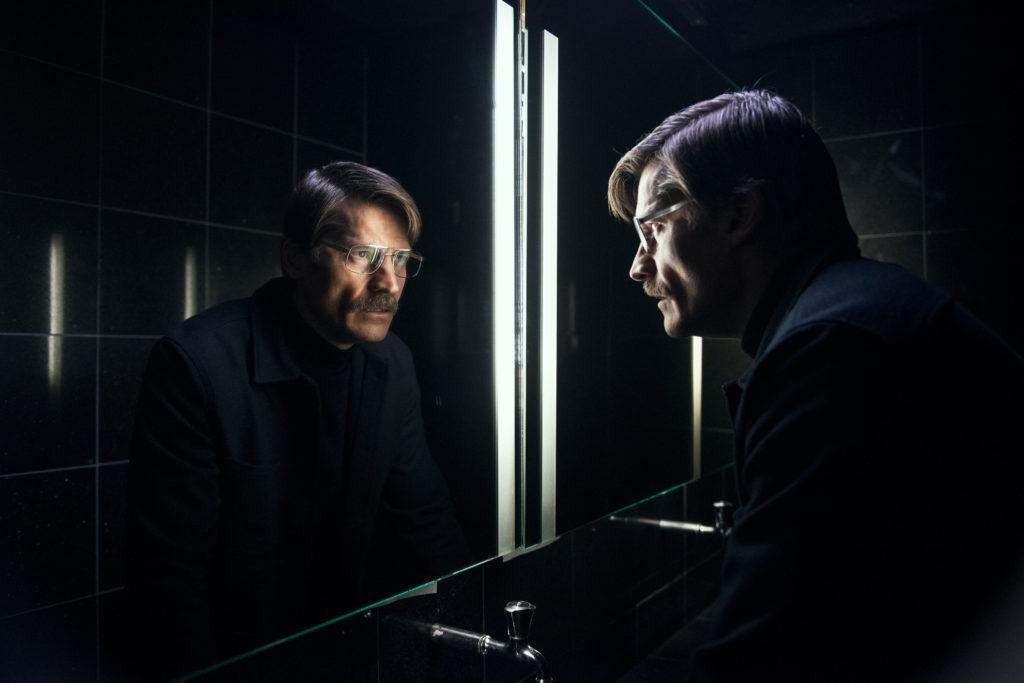Capsule reviews for June 12

Nikolaj Coster-Waldau stars in EXIT PLAN. (Photo: Screen Media Films)
Darkness Falls
Formulaic both as a police procedural and as an examination of intergenerational male bonding, this revenge thriller fails to generate much suspense. It starts with a police detective (Shawn Ashmore) discovering his artist wife dead of an apparent suicide in the bathtub. Despite evidence to the contrary, he suspects foul play, and begins piecing together clues that implicate a potential team of serial killers. His vigilante investigation goes against the advice of his captain (Daniella Alonso). Between the far-fetched twists and the persistently overbearing score, the film doesn’t offer much incentive for emotional investment in the inevitable outcome. The cast includes Gary Cole and Lin Shaye. (Not rated, 83 minutes).
Exit Plan
Nikolaj Coster-Waldau (“Game of Thrones”) might be best known for brawny action roles, but his understated performance lends conviction to this otherwise dreary Danish character study about assisted suicide. He plays Max, an insurance investigator whose latest case introduces him to Hotel Aurora, a mysterious utopia that enables suicidal guests to elaborately map out their final days. Experiencing psychological issues of his own, Max checks himself in, not fully comprehending the permanence of such a decision. The deliberately paced film is muddled in its depiction of an existential crisis, while the jumbled narrative leads to a final-act letdown. The result is more pretentious than profound. (Not rated, 89 minutes).
Fisherman’s Friends
Putting the corn in Cornwall, this innocuous British crowd-pleaser mixes quirks and sentiment with an off-key predictability. Based on a true story, it takes place in a coastal fishing village where a handful of grizzled mariners perform sea shanties at the local pub. Their voices attract the attention of an upstart record executive (Daniel Mays), who fights an obvious uphill battle to sign them to a record deal, the proceeds of which would benefit their working-class town. The good-natured underdog story gets a boost from the men’s rapport, whether or not they’re harmonizing. Yet when the focus turns elsewhere, the film seems lost at sea. (Rated PG-13, 112 minutes).
Infamous
A reference to a “modern-day Bonnie and Clyde” is strictly wishful thinking for this cynical thriller that offers an exaggerated scrutiny of millennial relationships in the social-media age. Arielle (Bella Thorne) and Dean (Jake Manley) are young lovers whose attraction seems to stem from shallow disenfranchisement. Their exploits involve a cross-country spree of armed robberies that become progressively more violent in order to satisfy their growing base of online followers. Of course, the superficial characters are unsympathetic — that’s the point. But the script by director Joshua Caldwell feels forced in its effort to manufacture outrage at the expense of any genuine insight or fresh perspective. (Not rated, 100 minutes).
Mope
The title refers to a bottom-rung male porn star, which certainly fits the description of the true-life protagonists in this uneven dark comedy that lacks fresh insight into its seedy subject matter. It chronicles the friendship of Steve Driver (Nathan Stewart-Jarrett) and Tom Dong (Kelly Sry), who each dream of adult-film stardom but lack the, um, talent on multiple fronts. After botching a potential breakthrough, Steve’s increasingly erratic behavior — he has a fetish for swords — leads to tragic consequences. The film can’t decide whether it wants to salute the two men for their brazen sincerity or make fun of their misguided ambition. Viewers get the shaft. (Not rated, 105 minutes).
The Short History of the Long Road
The latest low-budget saga about growing up off the grid finds its emotional impact diminished by traveling a familiar narrative path. However, this coming-of-age story benefits from a committed performance by pop singer Sabrina Carpenter as Nola, a precocious teenager who begins to resent living out of a van with her father (Steven Ogg) as a method of silent socioeconomic rebellion. When she gains unexpected independence, however, her resilience is tested by a whole new set of challenges. Along the transient stops on her journey, the screenplay by director Ani Simon-Kennedy crafts some intriguing character dynamics around a gritty tale of fractured families and self-discovery. (Not rated, 94 minutes).
Sometimes Always Never
You can watch Bill Nighy ratchet up the quirks and expand your vocabulary in the process while viewing this offbeat story of reconciliation through tragedy. Nighy plays Alan, a London tailor obsessed with Scrabble, the board game that severed his relationship with one of his sons. Alan embarks on a quest to find him, with another son (Sam Riley) who’s also frustrated with his erratic behavior. As he learns that repairing a family is more difficult than playing your tiles, the film sometimes awkwardly juggles its comedic and dramatic elements. However, despite some unnecessary visual gimmicks, it finds a winning combination of humor and heart. (Rated PG-13, 91 minutes).
The Surrogate
Intentionally raising more tough questions than it answers, this incisive character-driven drama takes a refreshing approach to progressive parenting. Jess (Jasmine Batchelor) has agreed to become a surrogate mother for her close friend (Chris Perfetti) and his husband (Sullivan Jones). But when a prenatal test reveals potential developmental issues for the child, it causes the trio to reconsider their arrangement and their friendship, and to make some difficult decisions. Although its reach sometimes exceeds its grasp, the script by director Jeremy Hersh doesn’t shy away from its inherent moral complexity. The well-acted film’s intriguing character dynamics explore, in intimate detail, dilemmas both specific and universal. (Not rated, 93 minutes).